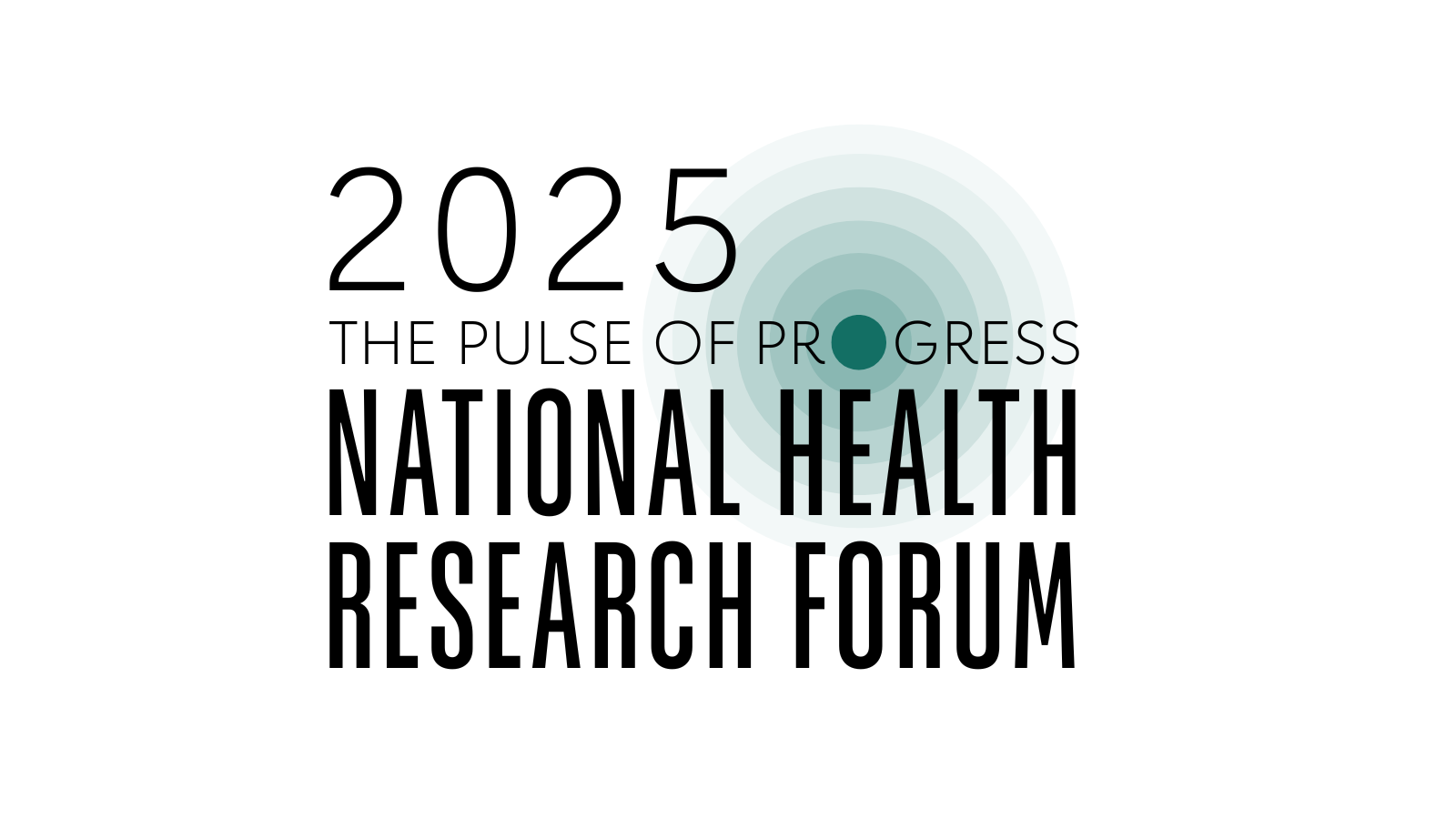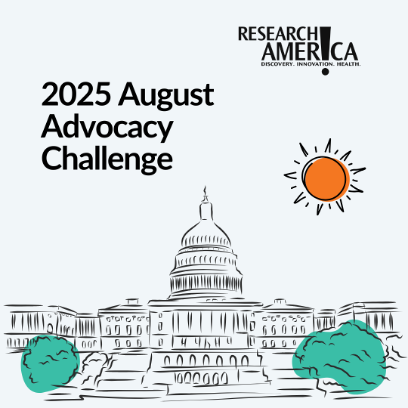Take the August Challenge

Members of Congress are home for August recess, meeting with their constituents and attending local events. When they return to D.C. this September, both houses of Congress will resume efforts to wrap up Fiscal Year 2026 appropriations – including funding for NIH and other research and public health agencies.
That makes now the perfect time to speak up, and we’ve made it easy with our August Advocacy Challenge. Whether you’re new to advocacy or already engaged, this challenge offers multiple ways to take action, earn points, and even win prizes. We’ve grouped the actions into three levels:
- Advocate (5 points): Taking the first step
- Builder (10 points): Building momentum
- Champion (25–50 points): Leading the charge with high-impact actions
There will also be bonus point opportunities throughout the month, including posting on social media about why medical and health research matters to you (don’t forget to tag Research!America and use #RAAugChallenge).
To help you every step of the way, we’ve created a toolkit with everything you need to make speaking up easy, meaningful, and doable. Every action you take shows your support for NIH and the lifesaving research it powers for you, your family, and communities nationwide. If you want to focus on other research or public health priorities, go for it! We’ve designed these tools to empower advocacy across the research and health ecosystem.
Download or print a scorecard and start your challenge now: use our editable action alert to contact your members of Congress and urge them to prioritize strong, sustained research funding.
Speaking of August engagement, Ellie Dehoney, our senior vice president of advocacy and policy, was quoted in several media outlets this week, including Roll Call and Bloomberg Government.
On the Hill: It’s worth recounting: Before adjourning for August recess, the Senate Appropriations Committee passed its FY26 Labor-HHS funding bill. It includes a $400 million increase for NIH and preserves language preventing NIH from changing the indirect cost reimbursement formula. Thanks to an amendment from Sen. Tammy Baldwin (D-WI), the bill would also pause the administration’s plan to “forward fund” NIH grants, which would otherwise mean far fewer grants.
The Senate Appropriations Committee also passed its funding bill for the Department of Defense, which includes $897 million for the Congressionally Directed Medical Research Programs (CDMRP). That’s a $200 million increase over the House bill, but is still far below FY24’s funding level of $1.5 billion. There’s work ahead to get CDMRP back on track.
Check out our budget chart for a full breakdown of proposed FY26 funding levels compared to FY25 across NIH, CDC, FDA, AHRQ, NSF, ARPA-H, BARDA, and CDMRP.
GAO Report: A new report from the independent U.S. Government Accountability Office (GAO) found that NIH violated the Impoundment Control Act of 1974. (In other words, GAO has concluded that NIH withheld congressionally appropriated funds without the legal authority to do so.) This finding is important, but a lawsuit would need to be filed to bring about any enforcement action.
Pocket Recissions Explained: On Aug. 6, GAO released a blog post focused on another important topic: whether so-called “pocket rescissions” are legal. As mentioned in previous letters, OMB Director Russell Vought has floated the possibility that the Trump Administration would send a “pocket rescission” to Capitol Hill in August.
This type of rescission is premised on the assumption that the Executive Branch has the authority to return previously appropriated funds — potentially including funding for NIH and other public health and science agencies — to the Federal Treasury unless Congress proactively prohibits the action.
GAO’s answer? Pocket rescissions are not legal. Read GAO’s blog post.
mRNA Vaccines: Health and Human Services Secretary Robert Kennedy Jr. announced this week that his agency was canceling nearly $500 million in contracts and grants for the development of mRNA vaccine technology. Former Surgeon General Jerome Adams, who served during the first Trump Administration, expressed deep concerns about this decision.
mRNA technology isn’t just useful for vaccines that combat infectious threats — such as bird flu and other forms of influenza — it holds promise for cancer and other conditions. In case you missed it, this op-ed highlights why continued investment in mRNA research, broadly, can drive breakthroughs in early cancer detection and personalized treatment, offering hope to families facing life-threatening diagnoses.
 The National Health Research Forum, Register Now: Registration is now open for Research!America’s 30th Annual National Health Research Forum, taking place virtually on Sept. 3 and 10, and in person on Sept. 17. This year, we’re introducing a dynamic new format that will provide actionable insights and foster collaborative discussions into critical health and scientific challenges. This year’s theme is The Pulse of Progress. Register and stay informed here.
The National Health Research Forum, Register Now: Registration is now open for Research!America’s 30th Annual National Health Research Forum, taking place virtually on Sept. 3 and 10, and in person on Sept. 17. This year, we’re introducing a dynamic new format that will provide actionable insights and foster collaborative discussions into critical health and scientific challenges. This year’s theme is The Pulse of Progress. Register and stay informed here.
Interested in supporting this event? Please contact Kristen Furlong to learn more about sponsorship opportunities.
PCORI Webinars: The Patient-Centered Outcomes Research Institute (PCORI) is hosting two webinars in the coming weeks: Maternal Morbidity and Mortality (MMM) on Aug. 11 and Intellectual and Developmental Disabilities (IDD) on Aug. 25. PCORI does not get the attention or credit it deserves for walking the walk of patient engagement in research. Join these two webinars and partner with us in PCORI advocacy!





